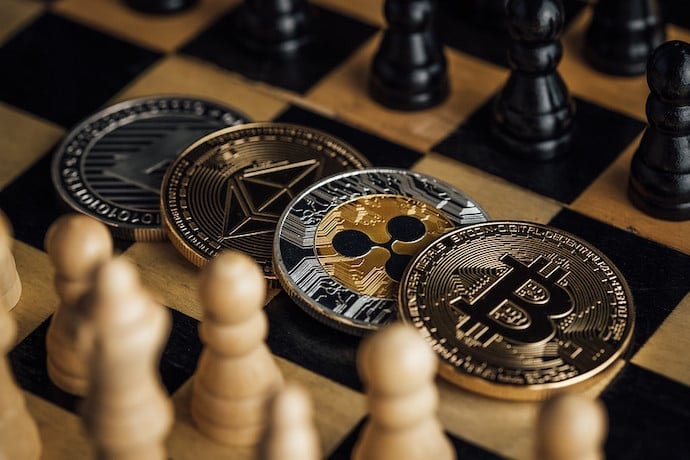You’ve all heard the saying, if something sounds too good to be true, it probably is.
Well, our topic today, NFTs, definitely falls into this category. So, let’s take a look at what NFTs are and why you should be skeptical before becoming involved with them.
NFT means non-fungible token that is part of the cryptocurrency market. Fungible is a funny sounding word meaning something that can be exchanged or traded. If you have read or heard about bitcoin and blockchains you may know that they involve currency that is independent of any country or government, unlike the US dollar which is the currency of the United States or the British pound which is the currency of England.
For something to be a currency, you must be able to exchange it reliably without the ability to create or destroy it. For example, you can trade a dollar bill for a purchase, but you can’t rip it up or make your own dollar bill at home. In the case of bitcoins and NPT, circumstances can get complicated when there are no banks or governments to oversee the exchange. Anyone could claim that they never got your payment, even if they did. Or, you could say you were a trillionaire. Who would know?
So the answer to this is that all cryptocurrencies are based on the idea of a digital public ledger, called a blockchain, that includes all the exchanges of a particular currency that have ever happened in the system, – the entire history of who has been paid what. And the system for the cryptocurrency ensures that everyone sees the exact same publicly visible record of all these exchanges.
Now, some cryptocurrencies can have more data stored in this public ledger than just exchanges of money: they can have, for example, links to data stored elsewhere on the internet.
This is where NFT comes in.
NFTs are special data on the public ledger, not a transaction but rather a link that points to data about an object: often a picture hosted elsewhere on the internet. You can buy and sell ownership over this special data as part of the public ledger with your cryptocurrency.
Now, here’s where it gets tricky. If you noticed, with NFTs, you’re never actually purchasing the object. What you’re purchasing is a bit of data on the public ledger that says it belongs to you. This is not actually relevant to whether it really belongs to you, as many artists have discovered when their digital art is stolen and turned into NFTs and then traded without their knowledge or consent. You can—in a sense—declare ownership over anything and then buy and sell that statement of ownership.
So, in a sense, NFTs are a big step backward from cryptocurrencies, which work hard to make sure you can’t just make up money. NFTs are literally about making up ownership.
Beyond that, there are other problems with the culture of NFTs and how they’re used. For example, this information is on a public ledger, meaning that everyone can see if you own an NFT. That doesn’t seem until you consider how you feel about microtransactions and paywalls in video games? Imagine that big companies start checking what things you own in the public ledger in order to determine whether or not you get to use all the features of a game. And not just one game, but every game they publish? What if you can’t just buy things or use websites without purchasing a whole other layer of stuff you don’t need just to use the things you’ve already bought?
A lot of the hype right now with big payments and stories of people making millions by selling their photos and digital art as NFTs needs to be looked at very skeptically: many of those transactions are artificial, essentially faked to make the NFTs look more valuable than they are by the people who have a stake in buying and selling them. Some even sell to themselves under a slightly different identity.
So these prices aren’t real and they’re probably going to collapse soon because, well, let’s be blunt, pictures of ugly apes aren’t actually worth hundreds of thousands of dollars unless you think you can sell them to someone else who thinks they’re worth millions of dollars because they think they can sell them to someone else who…
It sounds cynical, but caution is warranted now that teens and younger are being targeted for this. To even make an NFT costs money and the people who are pushing this as a way to get rich quick are making a lot of money just from the fees paid for making the NFTs.
Learn More
What is a non-fungible token?
The 10 Best Examples of NFTs
https://bernardmarr.com/the-10-best-examples-of-nfts/
What are NFTs and how do they work?
https://www.pnc.com/insights/personal-finance/save/what-are-nfts.html
NFTs explained for Kids
https://www.youtube.com/watch?v=v9r1-EtKF6Y
NFT video for kids
https://www.easypeasyfinance.com/nfts-non-fungible-tokens-for-kids/
NFTs explained by a kid
https://www.vice.com/en/article/m7ve3y/nfts-finally-explained-by-a-kid-no-less
Pros and cons of NFTs
https://www.annuity.org/2022/01/14/from-the-experts-8-pros-and-cons-of-nfts/
The Dark side of NFTs
https://www.thebigidea.nz/stories/the-dark-side-of-nfts
How much energy does Bitcoin use?
https://www.coindesk.com/business/2021/08/18/how-much-energy-does-bitcoin-use/
NFTs effect on Earth’s climate
https://www.wired.com/story/nfts-hot-effect-earth-climate/

